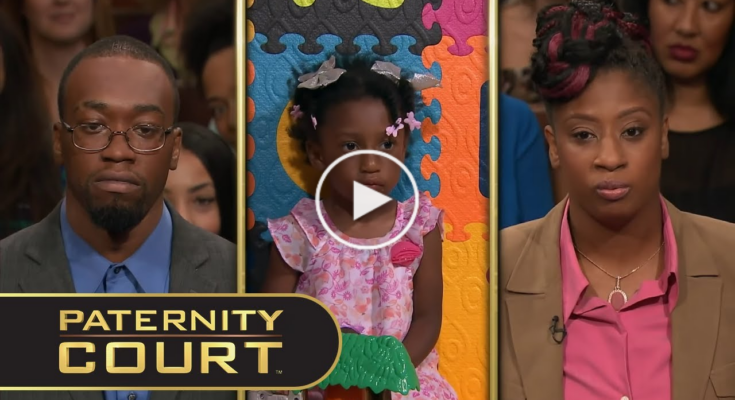Paternity disputes can be emotionally charged, with significant consequences for families involved. In the court case of Johnson/McIver v. Davenport, the story of three-year-old Malaya Davenport unfolds, highlighting the complexities of relationships, trust, and the impact on the child’s well-being. Through a series of testimonies and revelations, this article explores the profound emotions and co-parenting struggles, emphasizing the importance of seeking the truth and providing support for the child.
The courtroom is fraught with tension as Mr. Johnson and Ms. Davenport present their testimonies. Mr. Johnson asserts, “…she knows that I definitely don’t want to be on child support to pay for a child that’s not mine.” His doubts about Malaya’s paternity are evident, complicating the already strained relationship between him and Ms. Davenport. The revelation of social media posts with Malaya’s attachment to Ms. Davenport’s current boyfriend further adds to the turmoil, fueling Mr. Johnson’s uncertainty.
The transcript reveals the complexities of co-parenting and the involvement of Ms. Davenport’s current boyfriend in Malaya’s life. Ms. Davenport admits, “She calls my current boyfriend ‘daddy’ too.” The presence of another father figure in Malaya’s life raises tensions and insecurities for Mr. Johnson, who struggles to define his role as her biological father.
Amidst the dispute, effective communication between the parties becomes challenging, hampering the establishment of a stable co-parenting environment for Malaya. Both Mr. Johnson and Ms. Davenport’s unwillingness to see eye to eye complicates the situation further.
Throughout the proceedings, deep emotional wounds come to light, with allegations of infidelity and past lies surfacing. Mr. Johnson testifies, “…years later, I started noticing infidelity, a lot of lies…” These revelations add layers of complexity to the case and contribute to the uncertainty surrounding Malaya’s paternity. Ms. McIver, Mr. Johnson’s fiancée, supports his claims, revealing that Ms. Davenport has a pattern of trying to rekindle relationships with her exes.
In an effort to resolve the paternity dispute, the court orders DNA testing to determine Malaya’s biological father. Ms. Davenport remains adamant about Mr. Johnson being the father, asserting, “I know that in my mind, and I know in my heart, that he is the father.” However, Mr. Johnson’s doubts persist, leading him to question the truthfulness of her statements.
The courtroom drama not only affects the adults involved but also raises concerns about Malaya’s well-being. The court acknowledges the importance of establishing the truth for her sake and breaking generational curses affecting Ms. Davenport’s parenting style. The judge highlights the significance of providing a stable and nurturing environment for Malaya to thrive.
Judge Lake addresses the need for clear communication and co-parenting resources to promote a healthier environment for Malaya. Counseling and support are crucial in navigating the complexities of this family dynamic. The judge emphasizes that the involvement of a third party can often provide perspective and assistance in overcoming obstacles to effective co-parenting.
After a tense wait, the DNA test results confirm Mr. Johnson’s paternity, settling the dispute. The judge advises Mr. Johnson to embrace his role as a father figure and encourages him to be a positive influence in Malaya’s life. The revelation brings a mix of emotions, with Ms. Davenport expressing joy and relief, while Mr. Johnson grapples with the responsibilities of fatherhood.
The Johnson/McIver v. Davenport court case exemplifies the profound emotional impact of paternity disputes on families. As the truth emerges and co-parenting challenges are addressed, the well-being of the child becomes the priority. By breaking generational patterns, seeking support, and fostering open communication, families can build a healthier future for their children. This case serves as a poignant reminder that addressing paternity doubts with honesty and seeking professional assistance is vital to promoting a stable and nurturing environment for the child involved. Only by putting the child’s needs first can families hope to overcome the emotional turmoil and create a brighter future for all parties involved.



